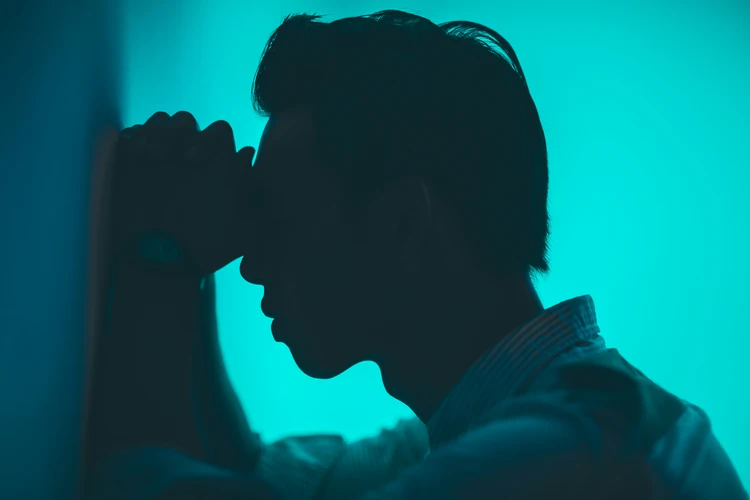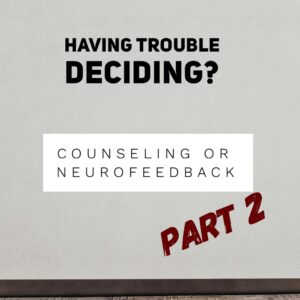When Worry Becomes Too Much: 5 Signs of Generalized Anxiety Disorder (GAD) in Young Adults

As a professional working in private practice with young people for over 20 years, I know their world and understand their unique struggles. What happens when normal stress—like the knot in your stomach before a big presentation—becomes a constant, overwhelming dread? For many young adults, this is the reality of Generalized Anxiety Disorder (GAD). GAD involves feeling extremely worried or nervous about everyday things, even when the worry is out of proportion to the situation. This persistent anxiety interferes with daily life and can last for months or even years. To be diagnosed, the worry must be difficult to control on most days for at least six months.
Young adults are particularly vulnerable: over 40 percent of adults aged 18 to 29 reported anxiety symptoms more days than not in 2022. The transition to adulthood brings unique pressures like financial independence and career development, and their brains are still developing emotional regulation capacity.
A significant challenge is the unique experience of anxiety in young men. Young males often report anxiety as physical symptoms like headaches, muscle tension, and panic attacks. Furthermore, traditional masculine norms—which emphasize emotional control and fearlessness—can lead to feelings of self-blame, failure, and powerlessness, making them less likely to recognize their anxiety symptoms as a disorder and seek help.
5 Warning Signs That Worry Has Crossed the Line
Sign 1: Physical Symptoms That Won't Go Away
For many, especially young men with GAD, anxiety manifests prominently in the body. These physical signs can resemble serious medical conditions:
- Chronic muscle tension (neck, shoulders, jaw)
- Persistent headaches or migraines
- Digestive problems (nausea, stomach pain)
- Chronic fatigue that sleep doesn’t resolve
- Rapid or irregular heartbeat or shortness of breath
Sign 2: Worry That Controls Your Daily Life
GAD worry is excessive, persistent, and disruptive. It becomes a difficult-to-turn-off mental habit. This worry spins in circles without resolution and can lead to an inability to tolerate uncertainty. It affects concentration and decision-making, often leading to a paralysis caused by perfectionism and fear of making mistakes.
Sign 3: Feeling Powerless and Out of Control
A core part of GAD is the sense that anxiety has taken over. This lack of control leads to feelings of guilt, shame, and failure. Young men, in particular, may feel they're failing at being “a man” because they can’t simply push through their symptoms, interpreting it as a personal failure rather than a medical condition.
Sign 4: Interference with Relationships and Performance
When anxiety escalates, it affects every area of life:
- Academic/Work Decline: Perfectionism and fear of failure make starting tasks feel impossible, derailing performance.
- Relationship Strain: Young men might become irritable, withdrawn, or emotionally unavailable, often not discussing their anxiety with their partner despite suffering for years.
- Social Isolation: Social withdrawal is a protective but damaging strategy.

Sign 5: Avoidance and Unhealthy Coping Mechanisms
The powerful instinct to avoid anything that triggers discomfort—such as skipping classes or procrastination—provides short-term relief but ultimately reinforces anxiety. Substance misuse (including alcohol or drugs) is a particularly concerning coping mechanism used to numb anxious feelings, but it ultimately worsens anxiety. Other patterns include excessive gaming or risk-taking behaviors.
Effective Treatment for Anxiety and Coping Skills
GAD is highly manageable with appropriate treatment, which can significantly reduce the severity of symptoms.
1. Professional Treatment Approaches
- Cognitive Behavioral Therapy (CBT): The gold standard psychotherapy. CBT helps identify and question inaccurate thought patterns, understand how they affect emotions and behavior, and change self-defeating patterns. Exposure therapy is often included.
- Acceptance and Commitment Therapy (ACT): Encourages nonjudgmental acceptance of thoughts and promotes engagement in meaningful activities despite anxiety.
- Medication: SSRIs and SNRIs such as escitalopram, duloxetine, and venlafaxine are often combined with therapy for optimal outcomes.
2. Practical Coping Skills
- Challenge anxious thoughts: Ask, “What evidence supports this? What contradicts it?”
- Deep breathing: Techniques like 4-7-8 breathing activate the calming parasympathetic nervous system.
- Grounding techniques: Use your five senses to anchor yourself in the present moment.
- Problem-focused coping: Define the problem clearly, brainstorm solutions, and break tasks into smaller steps.
- Lifestyle: Regular physical activity and good sleep hygiene support mental health.
3. Building Support Systems
- Challenge masculine norms: Seeking help is an act of courage, not weakness.
- Talk to someone: Confiding in a trusted friend, family member, or partner is a crucial first step.
- Professional resources: Contact a healthcare provider, campus counselor, or therapist. The 988 Suicide & Crisis Lifeline is available 24/7 for immediate support.
Common Questions About GAD in Young Adults
Ready to Book Your Appointment?
Read More from Jerred

5 Signs Your Son’s School Behavior Problems Require Professional Counseling
Is your son constantly in trouble at school — with teachers, coaches, and at home? Learn the 5 signs that go beyond normal teenage rebellion and how evidence-based CBT and ACT counseling can help teen boys in Edmond, OK turn things around before the consequences become permanent.

Is Teletherapy Right for My Teen? Balancing Convenience and Connection
As a therapist who has worked with Oklahoma teens for over 20 years, I know that the most important factor in therapy isn’t whether we meet online or in person — it’s the relationship we build together. This guide helps parents understand when teletherapy works best, when in-person sessions matter more, and how to find the right fit for their teenager.

Beyond Talk Therapy: Understanding Counseling vs. Neurofeedback (Part 2)
Discover how objective QEEG brain mapping removes the guesswork from mental health treatment by providing a personalized roadmap for your teenager’s brain. Learn why neurofeedback’s relaxing, medication-free approach is a powerful alternative for teens who are “talked out” or struggling with ADHD and anxiety.

Beyond Talk Therapy: Understanding Counseling vs. Neurofeedback (Part 1)
Traditional counseling uses “top-down” verbal processing to build coping skills and insight, while neurofeedback employs “bottom-up” brain training to regulate neurological patterns directly. Together, these approaches offer a comprehensive pathway to mental wellness by addressing both the psychological and physiological roots of challenges like ADHD, anxiety, and depression.

Stress vs. Depression in Young Men: A Parent’s Guide
As a therapist who has worked with young men for over twenty years, I’ve witnessed countless parents struggle to understand what their sons are experiencing—is it stress or depression? Understanding the difference is crucial because young men express depression differently than women, often through anger and irritability rather than sadness, making it easy to miss the warning signs.

How Long Does Neurofeedback Take to Work?
Google My Business Post Summaries
Two-Sentence Summary
Wondering how long neurofeedback takes to work? Most people need 20-40 sessions to experience substantial, lasting improvements, with about 70% noticing subtle changes within their first 1-3 sessions that gradually become more consistent and meaningful over time.